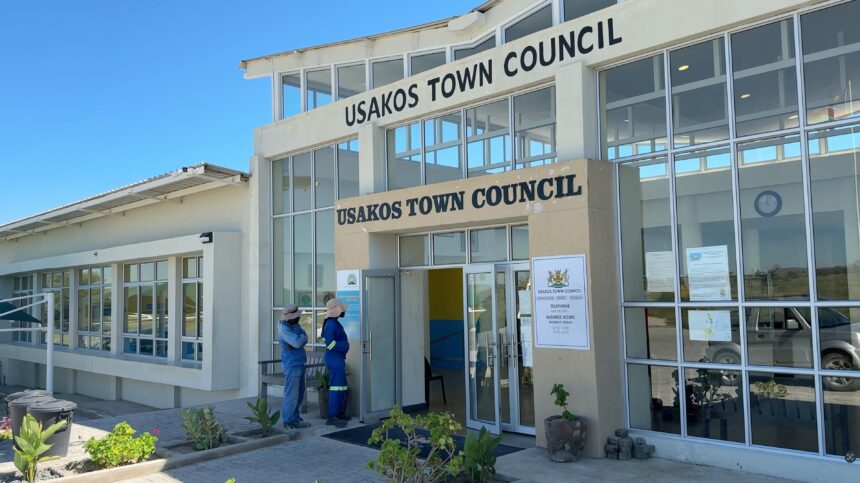The chief executive officer of the Usakos Town Council Lesley Goraseb (LG), was appointed to the position, on a five-year contract, in August last year.
Before his appointment, Goraseb was the chief executive of the Karibib Town Council, where he held the position for nearly two consecutive five-year terms. He answers questions from Limba Mupetami (NE) on his vision for the development of Usakos and the steps he has taken in leading the process.
NE: What were your first steps after being appointed CEO of Usakos?
LG: My first focus was to assess whether the town had key planning tools – like a strategic plan, structure plan, or town planning scheme. I found an outdated strategic plan, so we launched a review and began engaging stakeholders to draw up a new five-year strategy. Additionally, there was no structure plan, which is a crucial 20-year development guide. We have since appointed consultants, and the new structure plan should be ready by June.
NE: What are the biggest challenges Usakos faces?
LG: Youth unemployment is a major concern. However, the mayor has initiated an excellent empowerment programme, sending 66 local youths to the Namibian Institute of Mining and Technology (NIMT) for vocational training. Some have already been taken in by Navachab Mine and other companies. From my office, we’ve launched a voluntary employment programme for graduates to gain practical experience in departments like human resources and environmental management. We’ve also created an employment database to share with potential employers, including mining companies.
NE: How do you plan to unlock Usakos’ economic potential?
LG: We need to harness our geographic advantage. Usakos lies on the Trans-Kalahari Corridor. I’ve engaged the Walvis Bay Corridor Group to move some of the industrial activity from Walvis Bay to towns like Usakos. We’re also engaged in talks to establish a semi-precious stone cutting and polishing factory that will also train young people to acquire valuable skills. The aim of these projects is to spur industrial and manufacturing development in the town.
NE: What is being done to improve service delivery and infrastructure development?
LG: Planning is key. We’re developing five townships – about 1 500 erven for residential, industrial, and business purposes. Once land is serviced, mainly through central government funding, housing and business growth will follow naturally. We have also drilled four boreholes, two of which will be operational soon. Two new reservoirs are being built to ensure a consistent water supply. In sanitation, informal areas like Saamstaan and Ongulumbashe are being equipped with proper services.
NE: What role does political cooperation play in development?
LG: Political will is critical for development. I’ve been fortunate to receive strong support from our councillors, which has enabled the fast-tracking of progress.
If politicians, administrators, residents and businesses work together, towns would develop faster. When these sectors are divided, services stall. It’s collective effort that drives real change.
NE: Usakos lacks formal training centres. What is being done about this?
LG: That is true. We’re working to change that. We’ve signed Memorandum of Understanding (MoU) with Welwitchia University and Lingua College to establish campuses in Usakos. We also support Amnesty College, a small vocational institution already operating in the town. Additionally, we continue sending youth to NIMT for technical training.
NE: How is Usakos positioning itself to attract investors and tourists?
LG: We’re converting our old office building into the Usakos Museum to attract tourists. We’re also finalising an MoU with TransNamib to unlock land for development. The goal is for us to stop using TransNamib as an excuse for lack of growth and instead collaborate to push development forward. We are aligning with national directives to do things differently.
NE: What developments are planned in the sports sector?
LG: Our current stadium is underutilised and in poor condition. However, Usakos will host the next Amalgamated Rotational Annual Trade Fair in September, a joint initiative with Karibib and Omaruru. A budget has been allocated to redesign and eventually build a 5 000–10 000 capacity stadium.
In the short term, we’re collaborating with Swakopmund Municipality to install grass and irrigation facilities at the sports field ahead of the trade fair.
Sports can boost both the economy and social cohesion, and we’re taking it seriously now.
-lmupetami@nepc.com.na



